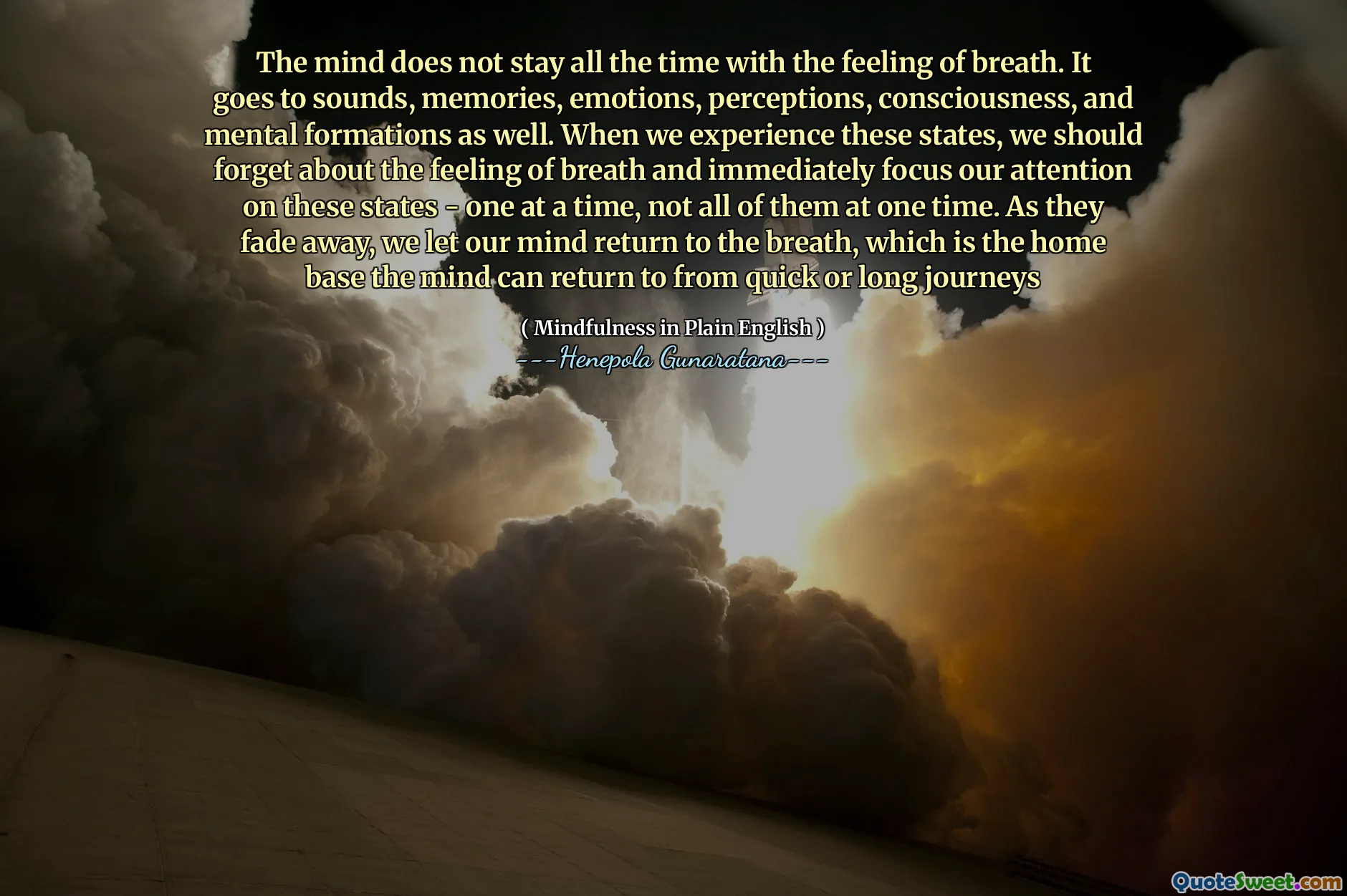
The mind does not stay all the time with the feeling of breath. It goes to sounds, memories, emotions, perceptions, consciousness, and mental formations as well. When we experience these states, we should forget about the feeling of breath and immediately focus our attention on these states - one at a time, not all of them at one time. As they fade away, we let our mind return to the breath, which is the home base the mind can return to from quick or long journeys
The passage highlights the natural tendency of the mind to wander beyond the sensation of breathing. It suggests that when the mind drifts toward various thoughts, sounds, or feelings, individuals should acknowledge these experiences. This should be done sequentially, focusing on one element at a time rather than attempting to manage them all at once.
As these thoughts and emotions begin to dissipate, the mind is encouraged to return to the breath. This act of returning signifies the breath as a fundamental anchor or "home base" for the mind, allowing for a sense of grounding amidst the fluctuations of consciousness.





